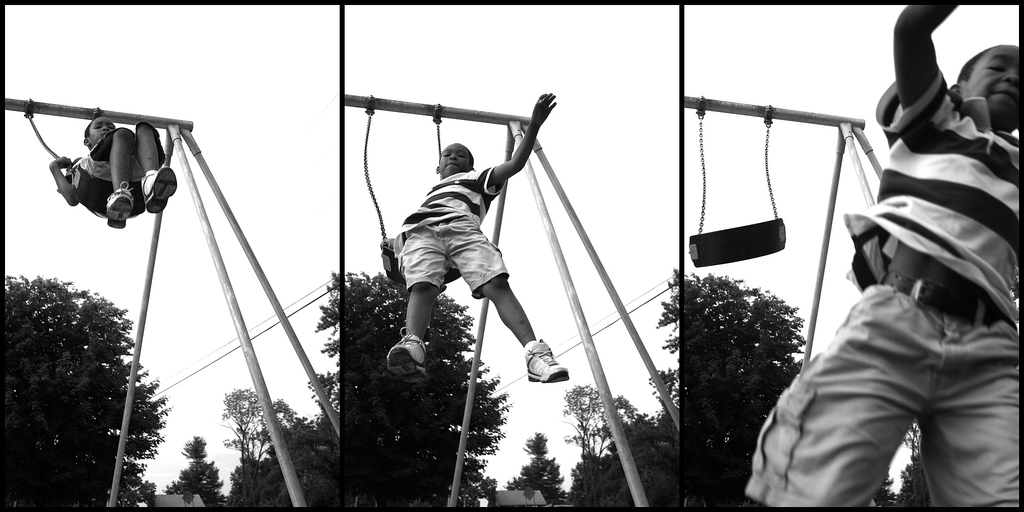Throughout my childhood, my parents taught fertility awareness classes, together as a couple. They mostly taught these classes in our living room! Yup, that’s right! They put up the slide projector in front of the fireplace and set up folding chairs around the room. And the slides that they’d show? All I could say was… Gross!
As a teenager, I frequently came home from babysitting jobs in the evenings to find our living room full of eager, young couples listening to my parents teach. I would have to walk through the class interrupting the slide show, just to get into the house!
But even with all of that, my parents didn’t talk to me much about sex!
When I became a mom I wasn’t sure when or how to start having “those” conversations with my kids.
Despite my desire to use proper anatomical terms, the day our toddler pointed between her legs and said, “Mom, what’s that?” I froze! I told her the slang term instead. I completely chickened out. Yikes!
Thankfully since then I’ve educated myself about how to talk to kids about sex. I’ve had many conversations–with our own children and with the preschoolers in our classroom. (Preschoolers have a lot of questions about their body and they LOVE bathroom humor.)
In our blog, we write a lot about how to talk to kids about their feelings, thoughts, how to help kids make good choices and to be safe.
But we haven’t talked about sex here. So we’re going to tackle it, with a little help from my friends…
Recently I attended a talk featuring Peggy Orenstien, author of Girls and Sex and Yalda Uhls, author of Media Moms and Digital Dads.
It was a fabulous conversation. I’m summarizing my favorite parts of their talk here. Plus I’ve added a few things that I’ve learned by reading books by Meg Hickling, author of Speaking of Sex.
Here’s what I learned from Peggy Orenstien with Yalda Uhls. (This conversation was more about teen girls, but if you have young children or boys this information is still relevant.)
The Dutch Do It Differently
Studies show that when American parents talk to their children about sex the conversation is mostly about risk and danger (contraception, disease, protection, and consent). Versus when Dutch parents talk to their children about sex the conversation is mostly about how to balance joy and responsibility.
DO: My take home message: With teens, talk about responsibility, but don’t forget the joy. Raise kids to know how to articulate their limits, needs and wants (this also keeps them safer online and irl).
Body Image Impacts Academics
Studies have shown that when girls self-objectify (thinking of oneself as an object first, and a person second) it has a negative impact on their cognitive function and emotional well being. For example, if a girl does a math test right after she tries on a swimsuit she will perform more poorly than a girl who tries on a sweater right before the test.
DO: Role model healthy body image for girls. When she is listening, say only positive things about my own body, take care of my body, and let aging happen naturally.
Be Aware of Messages
Girls are told in our society that how their bodies look to others is more important than how their bodies feel to themselves.
DO: Role model being excited about what my body can do and how it feels. Notice my daughter's physical strength and athletic accomplishments as much as I notice how she looks.
Ask Questions and Have Conversations
Discuss with kids “What do you think intimacy means? What do you think true love means?” Discuss with teens “Can you talk to your partner about what you want and don’t want? Can you tell him about what you like and don’t like? (e.g. holding hands vs. arm around you)”
DO: Have conversations. Avoid giving a lecture, trying to impart a lesson, or getting to an answer.
Teaching Manners Impacts Communication
We socialize girls to be polite, not to be rude, but girls sometimes don’t realize that when boundaries are crossed they don’t need to be polite.
DO: Starting when kids are young, encourage “no’s”, even strong ones. Listen and respect kids when they say “no”, especially when it’s about their own body.
Give Boys an Emotional Vocabulary
If we expect boys to take responsibility for their actions and feelings we also need to give them emotional language.
DO: Teach all young children about feelings. Build their emotional language. Don’t teach them to stifle their feelings by saying, “Be strong. Be a big boy.” Don’t praise boys or girls for stuffing feelings and for not crying.
Teach Girls Terminology
American parents don’t teach girls the names their own body parts.
Be Informed about Porn
Pornography is much more accessible to teens than it was when we were young. Sixty percent of teens use porn for sex education, even though they don’t think it’s realistic. Our silence about sex forces our children to go to other sources for information.
DO: Don’t be silent. Kids want to come to their parents for information. We need to let our kids know that we are open to these conversations.
Keep a Realistic Perspective
Studies show that most American boys want to have sex with someone they love rather than someone random. One study said that 70% of college students at Duke University reported having 1 or zero sexual partners.
Here’s what I learned from Meg Hickling:
Initiate the Conversation
Don’t wait until kids start asking about sex, some kids never will.
Communication Increases Safety
Talking about sexuality, body parts, body functions–in an age appropriate way–keeps kids safer. A well-informed child is less likely to become a victim of sexual abuse than an uninformed one. Teaching kids about sex does not increase promiscuity.
Start early (around age 3)
Young kids don’t have any shame or embarrassment about their bodies, only us adults do. Starting early with your children gives you a chance to practice talking about sex, while the stakes are low, and it sets the foundation for future conversations. It doesn’t have to be hard.
Keep Talking
Talking about sex is not a one-time conversation. You continue to revisit this topic at each developmental level with more information.
Get Educated
If you don’t know what to say, then read Speaking of Sex for recommendations about what to do at each age. It’s my go-to resource!
Recommended Reading about Sex, Gender, and Media:
Speaking of Sex, by Meg Hickling
Girls and Sex by Peggy Orenstien
Media Moms and Digital Dads by Yalda Uhls
Other Books We Love:
It’s Perfectly Normal, by Robie Harris
It’s So Amazing, by Robie Harris









